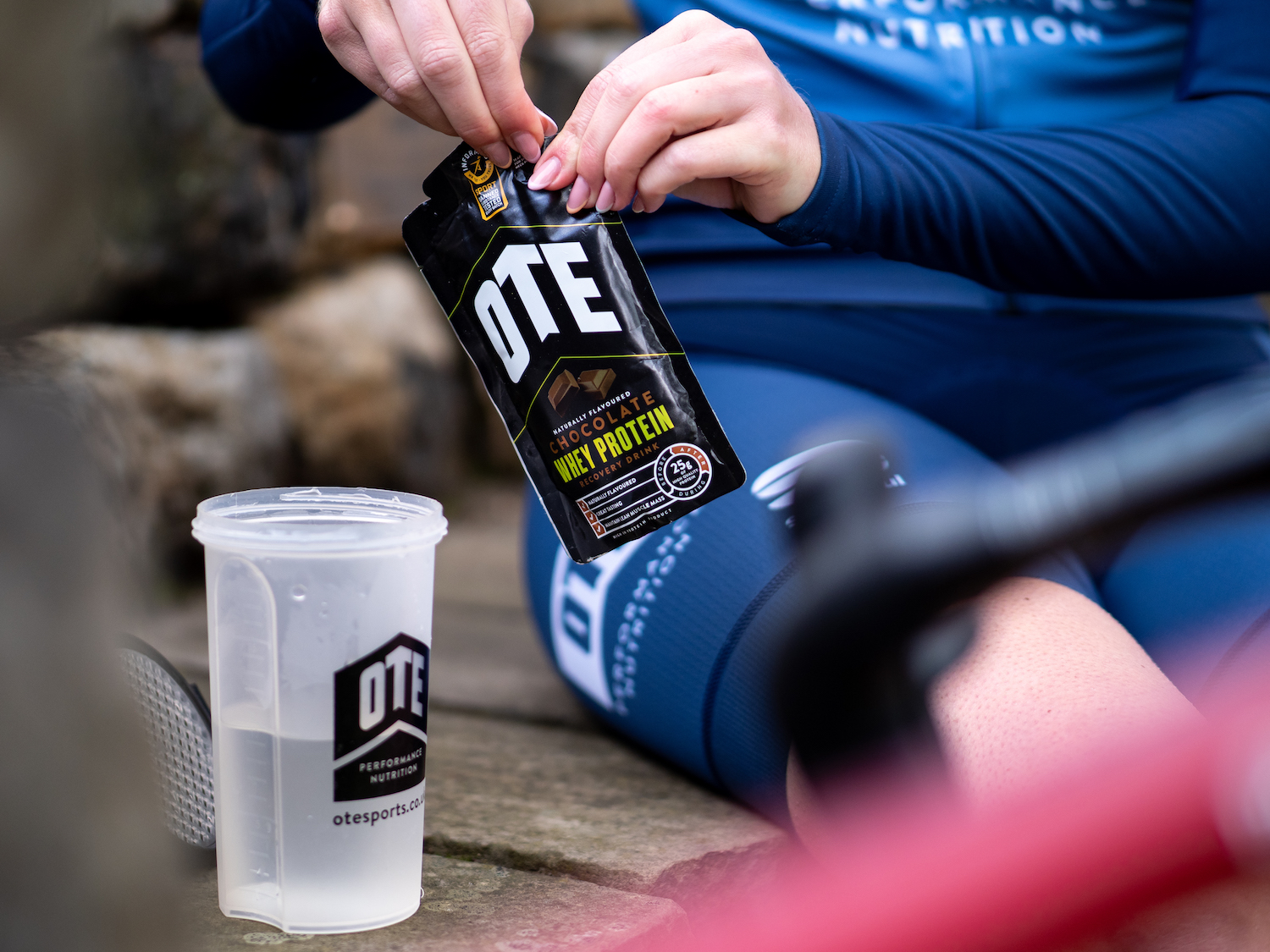Protein is an essential part of a healthy balanced diet. As athletes, many of us know that we should be consuming higher amounts of protein than the average person. However, it is often understanding why and when we need to consume protein that leaves us confused. OTE Sports are here to help.
When should protein be consumed?
Simply consuming your necessary protein intake for the day is not enough. Research has now eluded to a feeding pattern where athletes should spread their protein consumption evenly throughout the day. This further promotes protein synthesis and optimises muscle repair. Gone are the days where an evening meal is loaded with protein, you should aim to consume 20-25g of protein every 3-4 hours. This should be at meal times, post exercise (more on this later) and for midday snacks.
Whilst you are sleeping your body can also profit from being in a state of rest and use your energy to address the recovery and repair of muscle. However, you need to put the building blocks in for it to do so. Another 20-25g portion of protein before bed can kick start the process while you sleep and has been shown to help optimise an athlete’s recovery. Night time feeding is especially important and beneficial for athletes who are undertaking a heavy training block or competing in a multi-stage event.

Optimising Post Workout Recovery
When protein is consumed immediately after exercise (within 30 minutes) it enhances muscle uptake and retention of amino acids. This elicits the much sort after positive nitrogen balance. The increased state of protein metabolism has been found to last up to 24 hours, highlighting the importance of continuing to spread your protein intake through the day.
Research has shown the effect of post-exercise protein intake is best seen when the protein is combined with carbohydrates. Carbohydrate intake stimulates an increase in the hormone insulin, which in turn stimulates the muscle to take up the amino acids. A protein-carbohydrate snack, drink or meal after a workout makes good sense, not only for muscle repair and adaptation to training, but to provide carbohydrate fuel to restore muscle glycogen levels. An OTE Protein Drink is perfect for this as it provides the optimal amount of protein along with 19g of carbohydrate, vitamins and minerals. The carbohydrate content of your protein drink can easily be increased by adding a scoop of OTE Carbo Booster. This won’t affect the taste but allows you to tailor your recovery drink and boost your carbohydrate intake post exercise if required to suit your individual needs.
Quality over Quantity
Not all proteins are the same. The different amino acid combinations in different food sources change the ‘quality’ of the protein we are consuming. Meat, poultry and dairy products are the most popular ways in which we obtain our protein. These protein sources are considered to be of high quality as protein in food contains all the essential amino acids required to build muscle tissue. Plant food sources such as pasta, rice, cereals, legumes, lentils, soya and nuts also contribute to our overall protein intake, however, they don’t contain some of the essential amino acids required. The best way to ensure you are consuming the right balance of amino acids is to consume both types of protein.
Whey and Casein protein are both derived from milk protein substrates but their absorption times differ. Whey protein is quickly digested and the amino acids available in Whey are in large quantities making it ideal to consume immediately after training or racing. Casein is a slow release protein, the release of amino acids can drip feed the body for a longer period of time. Ideal to use prior to sleep. OTE Whey Protein Drink contains both these types of protein for the best of both worlds.
The OTE Soya Protein Drink offers the same recovery benefits as the OTE Whey Protein Drink but for those who are lactose intolerant or vegan.

Weight Loss
Protein can also play a strategic role in weight loss. Firstly, protein helps with satiety (fuller for longer feeling) after meals, which may help you avoid snacking. Also, by reducing carbohydrates in the diet our bodies are forced to use other macronutrients as the dominant fuel. This is because carbohydrates are easy-to-use fuels. When you eat less carbohydrate you encourage your body to break down stored fat and prevent your body from converting muscle protein to fuel. On a high protein diet the weight that is lost is mostly fat, not muscle, whereas on a high carbohydrate diet more muscle is lost. When weight is lost on a higher carbohydrate diet it is much more likely that people will hit a plateau in a few months that they cannot get past, long before the goal weight is reached.
When you increase quality protein intake over the basic amount needed for nitrogen balance, in combination with lower carbohydrates, branch chain amino acids like leucine, which are metabolized in your muscles, act favourably to benefit muscle function and a variety of factors that have an impact on cardiovascular health – including enhanced calorie burning by muscle that supports healthy weight loss.
Top Fact: A high protein breakfast can increase your metabolic rate by 30 percent for as long as 12 hours.